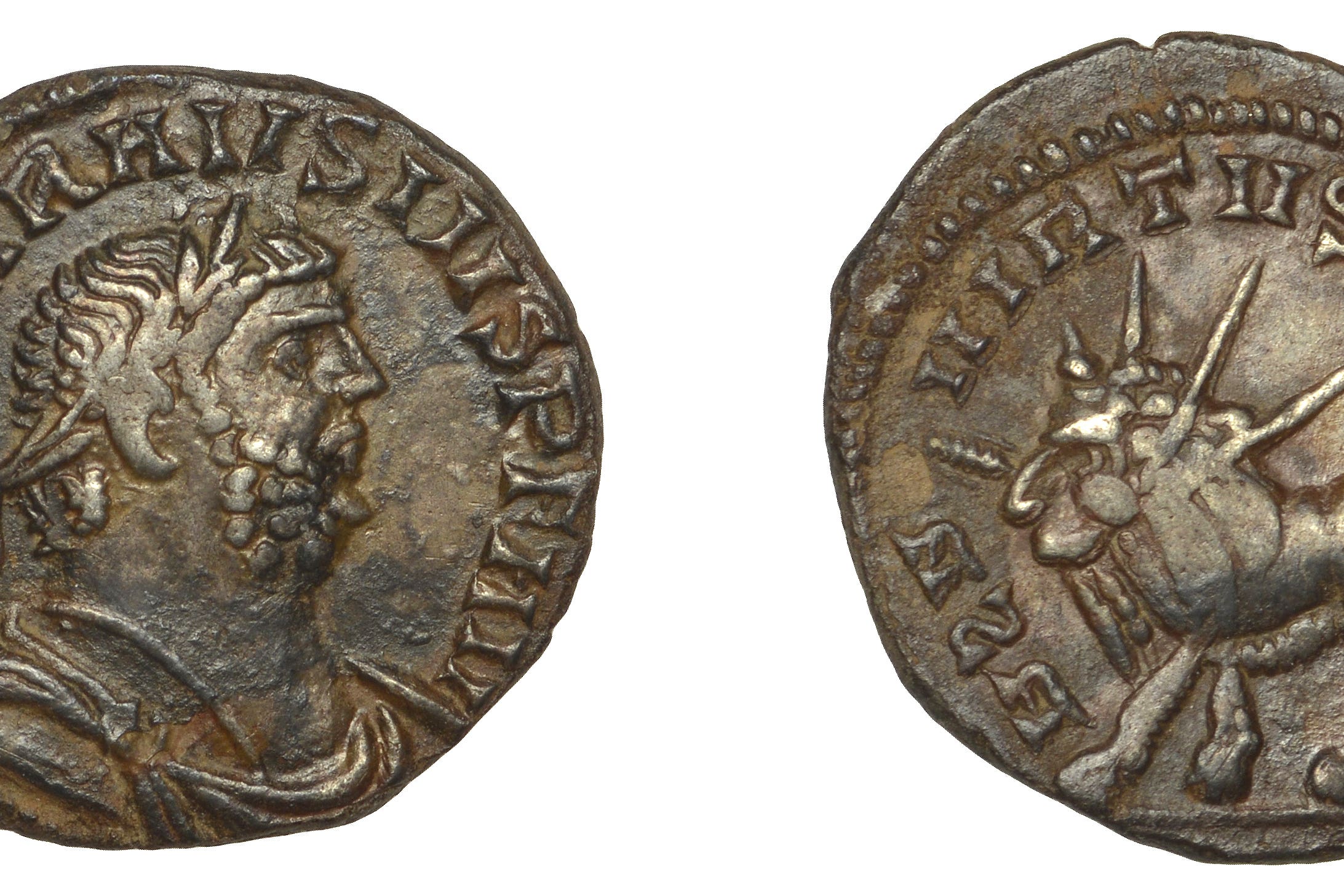Rare Roman coin discovered in field expected to fetch up to £8,000 at auction
The coin was discovered in June by Mike Clark, 73, in a field in South Brewham in Somerset.

Your support helps us to tell the story
From reproductive rights to climate change to Big Tech, The Independent is on the ground when the story is developing. Whether it's investigating the financials of Elon Musk's pro-Trump PAC or producing our latest documentary, 'The A Word', which shines a light on the American women fighting for reproductive rights, we know how important it is to parse out the facts from the messaging.
At such a critical moment in US history, we need reporters on the ground. Your donation allows us to keep sending journalists to speak to both sides of the story.
The Independent is trusted by Americans across the entire political spectrum. And unlike many other quality news outlets, we choose not to lock Americans out of our reporting and analysis with paywalls. We believe quality journalism should be available to everyone, paid for by those who can afford it.
Your support makes all the difference.An extremely rare silver denarius of the Roman Emperor Carausius is expected to fetch up to £8,000 when it is sold at auction.
The coin was discovered in June by Mike Clark, 73, in a field in South Brewham in Somerset.
Mr Clark, from Wimborne, Dorset, said: “It was on June 9, that I attended an organised dig with around 20 detectorists on some pasture fields at South Brewham.
“Using my XP Deus 1 metal detector, which I have had for many years, nothing was found in the morning but in the afternoon on another field my first signal was a £1 coin.
“The next signal revealed at a depth of six inches a silver coin.
“I recognised it immediately as a denarius of the Roman Emperor Carausius. I then contacted the local finds liaison officer so that it could be properly recorded.”
The coin is expected to fetch between £6,000 and £8,000 when it is sold at auction at Noonans Mayfair on October 22.
Nigel Mills, coins and artefacts specialist at Noonans, said: “The coin, which was never published, features a laureate bust of the usurper Carausius, who commanded the Roman fleet ‘Classis Britannica’, based in the English Channel.
“In AD 286 the emperor Maximian ordered his execution after Carausius was suspected of concealing treasure captured from pirates.
“Carausius then declared himself Emperor of Britain and northern Gaul making Britain an independent state.
“For this he is sometimes regarded as the first ‘brexiteer”.
“The coin features a radiate Lion holding a thunderbolt. The letters RSR appear before the Lion which are the abbreviation for “Rodeunt Saturnia Regna’ from the poet Virgil’s ‘Eclogues’ meaning the kingdom of Saturn returns.
“Carausius is hinting at a return to a Golden Age through his leadership. Carausius was murdered seven years later by his finance minister Allectus.”
Mr Clark, a retired commercial fisherman who has been metal detecting for 52 years, will share the proceeds of the auction with the landowner.